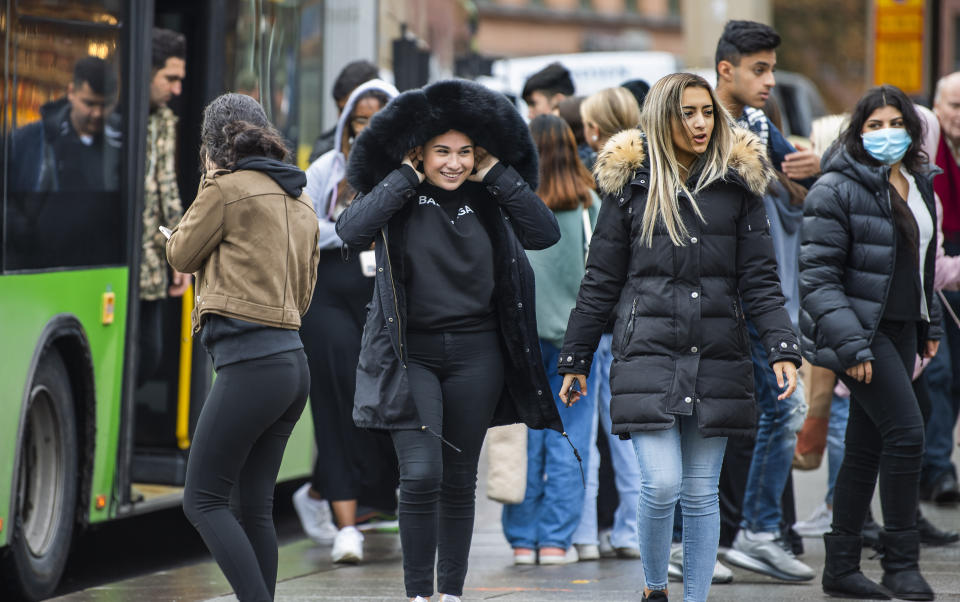Country's new isolation rules after controversial Covid backflip
One country which decided against a strict lockdown at the start of the year along with its European counterparts is hoping a voluntary lockdown will suppress the rising number of coronavirus cases.
Sweden’s approach to the pandemic has been controversial. Instead of imposing harsh restrictions and lockdowns, there was an emphasis on social distancing and shielding the vulnerable.
There’s more than 107,000 coronavirus cases in Sweden, according to Johns Hopkins University data and upwards of 5,920 deaths.
Now, there has been a shift to health authorities implementing measures that are “something in between regulations and recommendation”, according to Swedish news outlet The Local.

The national recommendations for Sweden are relatively straight forward: stay home if sick, wash hands frequently and work from home if possible.
Masks are not mandatory in Sweden, but gatherings of more than 50 people are banned, the BBC reported.
In Sweden, you may face legal action for breaking the temporary laws put in place amid the pandemic, but it depends on which you break.
For example, hosting a gathering of more than 50 people is in violation of the Public Order Act, which could result in imprisonment or fines and police have the authority to break up a gathering, The Local explained.
Sweden imposed the ban on gatherings back in March, according to the Public Health Agency of Sweden, public gatherings are considered to be demonstrations, lectures, religious gatherings or theatre and cinema performances.
While sporting events, dance events or fairs are considered to be public events and are also banned.
Though for the most part, the responsibility falls on the individual to minimise the spread of Covid.
From October 19, regional health authorities have been working with the Public Health Agency to issue recommendations for certain areas which are more riddled with Covid-19 than others.
“If an outbreak is taking place in a region, the Swedish Public Health Agency may, after consultation with the region's infection control physician, decide that the local general councils come into force in the region or in a part of a region,” The Public Health Agency of Sweden said of the decision on its website.

Uppsala was the first Swedish region to enforce additional recommendations, which are not optional, but there are no legal consequences for those who break them.
Shops and businesses in Uppsala have seen stricter recommendations.
“All businesses should take measures to, for example, minimise the number of visitors at the same time,” The Public Health Agency of Sweden says.
“Employers are urged to, among other things, ensure that staff can work from home.”
People are urged to not use public transport, avoid physical touch with those outside their household and not arrange or organise parties or social gatherings, The Local reported.
According to the Public Health Agency of Sweden, the rapid spread of Covid-19 in the Uppsala region is “worrying” and the stricter general advice is valid until November 2.
Do you have a story tip? Email: newsroomau@yahoonews.com.
You can also follow us on Facebook, Instagram and Twitter and download the Yahoo News app from the App Store or Google Play.



